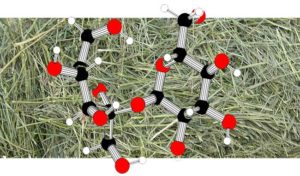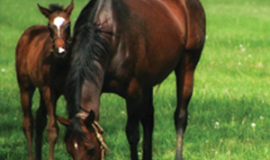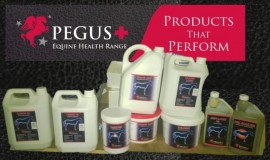Among horse owners, there is a significant level of interest in the sugar content of hays and haylages. This is mainly because a high sugar content in forages can cause problems, especially for horses and ponies with diseases such as Cushings syndrome, insulin resistance and laminitis.
Sugar analyses
There are several different types of sugar analysis used by commercial labs. Their reports often make reference to what they term sugar. It is important however, that the methods they use should also be clearly indicated, to clarify which types of sugar the analyses actually refer to.
Ethanol Soluble Carbohydrates (ESC) this includes glucose, fructose and sucrose. However, only a very small part of the fructans will be included.
Water Soluble Carbohydrates (WSC) includes glucose, fructose, sucrose and fructans.
Non Structural Carbohydrates (NSC) includes the same sugars as in WSC but also, additionally, starch.
The storage carbohydrate in cool-season grasses is, to a large extent, fructans. This means that when analyzing forages for sugars, the method used should include not only monosaccharides and disaccharides, but also fructans. ESC will not include the fructans and this method is not to be preferred when analyzing forages for horses. As cool-season grasses contain very little starch, analyzing for WSC or NSC should give more or less the same results.
Eurofins is a company that analyzes forages in many European countries. When analyzing for sugars they are using WSC.
Normally, horses will tolerate hays and haylages with a relatively high content of sugar. However, horses that are sensitive to sugars (especially those with Cushings syndrome, insulin resistance, laminitis), should preferably have forage with a sugar content less than 10% (100 grams per kg dry matter). The sugar content of hay can be reduced by soaking in water for some hours before feeding.
For more information and diet consultation contact Pegus Horse Feed directly on the
Free Phone Helpline
R.O.I.= 1800-378463 UK = 0800 011 4182















